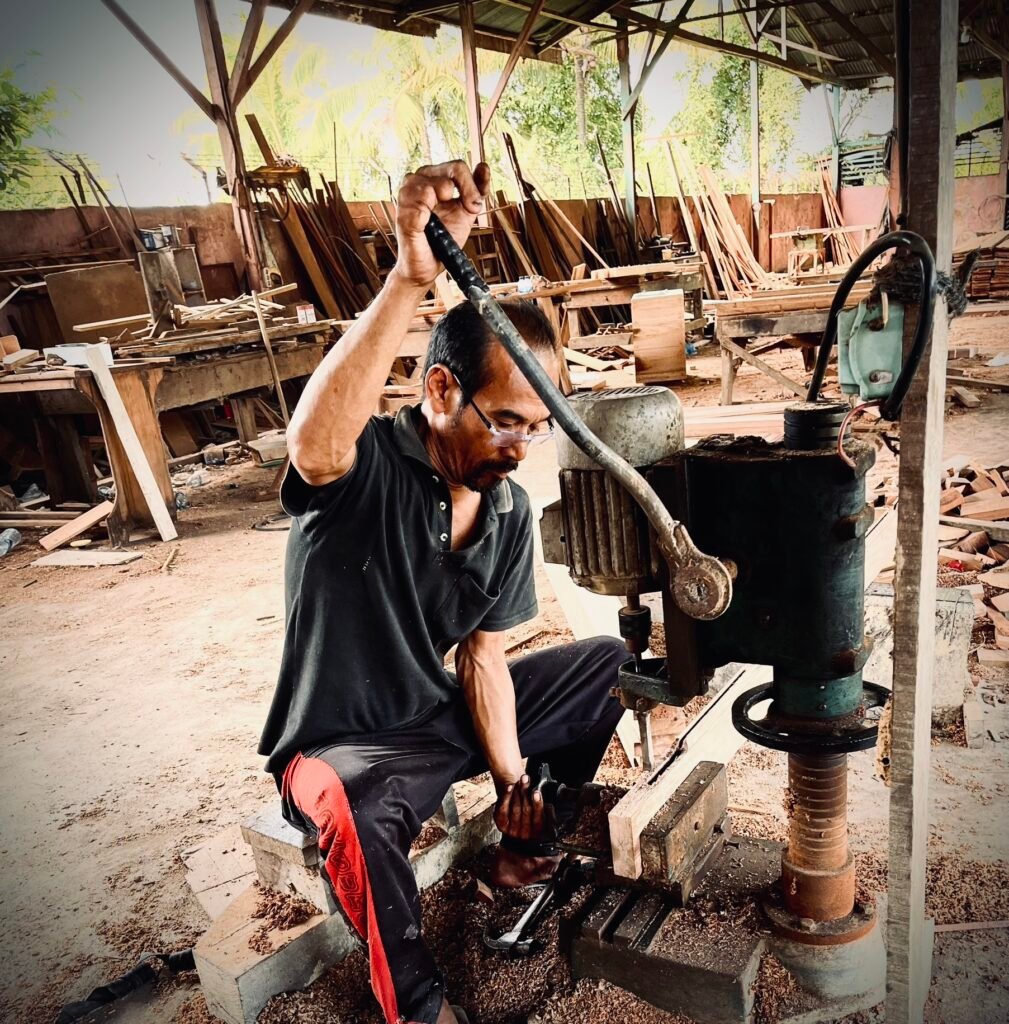Indonesian wood, world quality

“Welcome to Karabna wood, your main destination for high quality wood products sourced from sustainable forests in Indonesia. With decades of experience in the industry, we are committed to providing excellence in every aspect of our business.”

Company Overview:
“PT. Putra Ampon Amir (KarabnaWood) – Trusted Indonesian wood exporter. We offer high-quality timber such as Keruing, Damar Sui, Red Meranti, Merbau, and Simantok, as well as furniture products like doors, frames, windows, tables, and more. Your reliable wood solution!
provide
all types of timbers
products offered
home
furniture
Carving Out Excellence

Sustainability. Karabna wood is committed to eco-friendly practices, utilizing responsibly sourced wood and implementing green manufacturing processes
Our Services
offers various products of wooden furniture, wooden boards and timbers that have been cleaned
Easy solutions to your wood working problems.
Contact with our professionals
For further information please contact the number listed below.
Call us today at (+62)82275751605



Global Wood Export Solutions: Elevating the Export of Timber and Furniture Worldwide
The global wood industry plays a critical role in shaping economies and sustaining livelihoods. Timber and furniture, as essential components of this sector, not only fulfill functional needs but also embody the cultural heritage and craftsmanship of their origins. As the demand for wood products continues to rise, the importance of effective export strategies and solutions becomes paramount. Let’s explore how innovative practices are revolutionizing the global wood export market and fostering sustainable growth.
Meeting Global Demand for Timber
Timber remains one of the most versatile and sought-after resources worldwide. Countries rich in forestry, such as Indonesia, Brazil, and Canada, serve as primary suppliers of high-quality wood, including varieties like Keruing, Merbau, and Red Meranti. The increasing demand for these materials in construction, furniture manufacturing, and interior design highlights the importance of a robust export strategy.
Exporters are now leveraging advanced logistics, digital marketplaces, and enhanced communication channels to meet the growing global demand. Companies like KarabnaWood are collaborating with certified sustainable forestry programs, ensuring the ethical sourcing of timber, preserving forests for future generations while meeting international regulations.
Innovations in Furniture Export
Furniture represents a significant value-added component of the wood export industry. Craftsmanship, design, and quality are crucial factors that drive international demand. Exporters from countries like Indonesia are known for producing high-quality furniture—including doors, frames, windows, and tables—using sustainably sourced timber such as Damar Sui and Simantok.
To remain competitive, furniture exporters such as KarabnaWood are adopting innovative strategies:
Eco-friendly Manufacturing: Adhering to eco-certification standards like FSC (Forest Stewardship Council) and PEFC (Programme for the Endorsement of Forest Certification) to appeal to environmentally conscious consumers.
Digital Marketing: Utilizing online platforms and virtual showrooms to showcase products to a global audience, breaking geographical barriers.
Customization: Offering bespoke furniture solutions tailored to diverse markets, from minimalist designs for Scandinavian homes to ornate pieces for Middle Eastern interiors.
Overcoming Challenges in Wood Export
Despite the promising growth, the wood export industry faces challenges, including fluctuating trade policies, transportation bottlenecks, and competition from alternative materials. Addressing these issues requires:
Strengthening Trade Agreements: Negotiating favorable tariffs and fostering partnerships to ensure a seamless flow of goods across borders.
Streamlining Supply Chains: Investing in efficient transportation and storage solutions to reduce costs and enhance reliability.
Promoting Sustainability: Ensuring compliance with global sustainability standards to build trust with consumers and governments.
The Role of Technology and Innovation
Technology is a game-changer in the wood export industry. From inventory management systems to blockchain for tracking timber origins, digital tools enhance transparency and efficiency. AI-powered demand forecasting and market analysis enable exporters to make informed decisions, ensuring the right products reach the right markets at the right time.
Furthermore, 3D printing and CNC machining are revolutionizing furniture production, allowing for precise designs and reducing waste. These advancements not only enhance productivity but also reinforce sustainability in the industry.
Sustainability: A Non-Negotiable Priority
Sustainability lies at the heart of the wood export sector. Exporters must balance economic growth with environmental stewardship. By supporting reforestation initiatives and adhering to sustainable harvesting practices, companies contribute to global efforts against deforestation and climate change.
Certifications like FSC and initiatives like carbon offset programs are becoming industry standards. They not only protect natural resources but also enhance the reputation of exporters in international markets.
Spotlight on KarabnaWood: A Leader in Sustainable Wood Exports
KarabnaWood has emerged as a key player in the global wood export industry, exemplifying the best practices in sustainability and innovation. By leveraging its extensive experience and commitment to quality, the company has successfully expanded its footprint in major markets across the globe.
Commitment to Excellence
KarabnaWood ensures that every product—from premium Keruing timber to intricately crafted furniture—meets international standards. Their dedication to quality control, from sourcing raw materials to the final product, ensures customer satisfaction and long-term partnerships.
Driving Economic Growth
The company also contributes to economic development by creating job opportunities and supporting local communities. By investing in training programs and skill development, KarabnaWood empowers workers to embrace modern techniques while preserving traditional craftsmanship.
Partnering for the Future
KarabnaWood actively collaborates with environmental organizations and industry stakeholders to promote sustainable practices. Their involvement in reforestation projects and carbon offset programs highlights their leadership in addressing environmental challenges.
Conclusion
Global wood export solutions are redefining the way timber and furniture are traded across borders. By embracing innovation, addressing challenges, and committing to sustainability, the industry is well-positioned to thrive in a competitive global landscape. For exporters like KarabnaWood, the key to success lies in understanding market needs, leveraging technology, and fostering sustainable practices. Together, these strategies will ensure that the world’s timber and furniture industries continue to flourish while preserving the planet for future generations.
